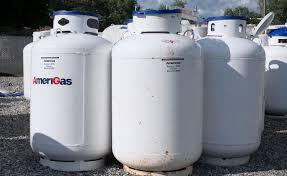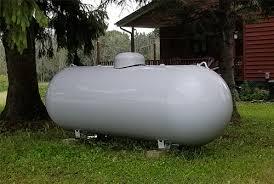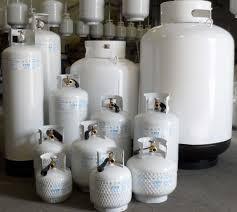Propane is a versatile and efficient fuel source widely used for heating, cooking, and other household applications. Choosing the right propane tank size is crucial for ensuring you have a reliable supply of fuel. This guide will help homeowners understand the different propane tank sizes and their applications.
Common Propane Tank Sizes

20-Pound Propane Tanks
20-pound propane tanks are commonly used for small appliances like barbecue grills, patio heaters, and portable stoves. They are easy to transport and refill, making them a convenient choice for outdoor activities.
100-Pound Propane Tanks
100-pound propane tanks are often used for small residential heating, cooking, and drying applications. They provide a good balance between portability and capacity, making them suitable for homes with moderate propane usage.
500-Gallon Propane Tanks
500-gallon propane tanks are suitable for larger homes or properties with high propane usage. They are often used for whole-house heating systems, generators, and pool heaters. These tanks require professional installation and are typically placed underground.
1,000-Gallon Propane Tanks
1,000-gallon propane tanks are ideal for large homes or commercial properties. They provide a substantial fuel reserve, reducing the frequency of refills. These tanks are commonly used for heating, hot water systems, and large appliances.
Selecting the Right Tank Size
Choosing the appropriate propane tank size depends on several factors, including the size of your home, the number of propane appliances, and your average fuel consumption. It’s essential to assess your needs carefully to avoid running out of propane or overspending on an excessively large tank.
Heating Systems and Propane Usage
If you have a propane heating system, such as a heat pump or furnace, it’s crucial to ensure your tank size matches your heating demands. Heat pumps, which transfer heat from the air or ground to your home, are efficient but may require auxiliary heat during extreme cold.
What is Auxiliary Heat?

Auxiliary heat refers to the backup heating system used by heat pumps when the outdoor temperature drops too low for the heat pump to operate efficiently. It typically involves electric resistance heating elements that provide additional warmth when needed.
Daikin Mini Split Systems
Daikin mini split systems are popular for their efficiency and flexibility. These systems provide both heating and cooling without the need for air ducts, making them an excellent choice for homes without existing ductwork. Mini splits use an outdoor compressor and one or more indoor air handling units to distribute conditioned air.
Air Ducts and Heating Efficiency
Air ducts play a crucial role in distributing warm or cool air throughout your home. Properly designed and sealed ducts ensure efficient airflow and even temperature distribution. Leaky or poorly insulated ducts can lead to energy loss and increased heating costs.
Brand Considerations: Bryant
When choosing a heating or cooling system, it’s important to consider reputable brands like Bryant. Known for their reliability and performance, Bryant offers a range of heating and cooling solutions, including heat pumps, furnaces, and air conditioners. Investing in a high-quality system can enhance your home’s comfort and energy efficiency.
Installation and Maintenance

Professional Installation
Proper installation of your propane tank is essential for safety and efficiency. Professional installers will ensure the tank is placed correctly, with adequate clearance from buildings and potential ignition sources. They will also secure the tank to prevent movement and inspect the connections for leaks.
Regular Maintenance
Maintaining your propane tank and related appliances is crucial for ensuring their longevity and performance. Regular inspections, leak tests, and tank refills are necessary to keep your system running smoothly. Additionally, servicing your heating and cooling systems, such as heat pumps and Daikin mini splits, will help maintain their efficiency and reliability.
Safety Precautions
Safety is paramount when dealing with propane tanks. Ensure your tank is installed in a well-ventilated area, away from potential ignition sources. Regularly check for leaks and have any issues addressed promptly by a professional. Familiarize yourself with the smell of propane and install gas detectors in your home for added safety.
Conclusion
Understanding propane tank sizes and their applications is vital for homeowners who rely on propane for heating, cooking, and other uses. By selecting the right tank size and maintaining your system, you can ensure a reliable and efficient fuel supply for your home. Consider factors such as your heating system, auxiliary heat requirements, and brand choices like Bryant to make informed decisions. With proper installation and maintenance, propane can be a safe and effective energy source for your household
